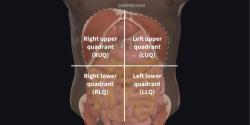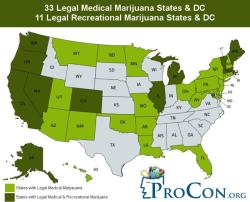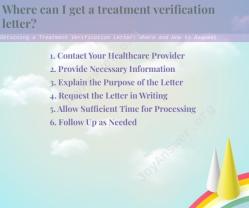How to tell if you are lactose intolerant quiz?
While a self-assessment quiz cannot replace a formal diagnosis by a healthcare professional, it can provide some insights and help you identify whether you may have symptoms consistent with lactose intolerance. Keep in mind that lactose intolerance varies in severity among individuals, and symptoms may overlap with other gastrointestinal conditions. If you suspect you have lactose intolerance, it's crucial to consult with a healthcare provider for a proper diagnosis. Here's a simple quiz to help you identify potential symptoms:
Lactose Intolerance Self-Assessment Quiz:
Do you experience bloating or gas after consuming dairy products?
- a. Yes
- b. No
Do you often have diarrhea or loose stools after consuming dairy?
- a. Yes
- b. No
Do you experience abdominal pain or cramps after consuming dairy?
- a. Yes
- b. No
Do you feel nauseous after consuming dairy products?
- a. Yes
- b. No
Have you noticed an increase in symptoms when you consume larger amounts of dairy?
- a. Yes
- b. No
Do you find relief from symptoms when you avoid dairy or take lactase supplements?
- a. Yes
- b. No
Have you recently had an illness, surgery, or medical treatment that may have affected your digestive system?
- a. Yes
- b. No
Do you have a family history of lactose intolerance?
- a. Yes
- b. No
Have you noticed a correlation between the consumption of dairy and the onset of your symptoms?
- a. Yes
- b. No
Do you experience symptoms within a few hours of consuming dairy products?
- a. Yes
- b. No
Scoring:
- Count the number of "Yes" answers.
Interpretation:
7-10 "Yes" answers: Your symptoms suggest that lactose intolerance may be a possibility. Consult with a healthcare professional for a formal diagnosis and guidance on managing symptoms.
4-6 "Yes" answers: Your symptoms may be indicative of lactose intolerance. It's advisable to consult with a healthcare provider for further evaluation.
0-3 "Yes" answers: Your symptoms may be less suggestive of lactose intolerance, but it's essential to consult with a healthcare professional to explore other potential causes.
Remember that this quiz is not a substitute for professional medical advice, diagnosis, or treatment. If you suspect lactose intolerance, seek guidance from a healthcare provider for proper evaluation and management.
Sure, here is a guide to recognizing common symptoms of lactose intolerance, assessing your lactose intake and digestive reactions, and considering further testing for lactose intolerance diagnosis:
Recognizing Common Symptoms of Lactose Intolerance
Lactose intolerance is a common digestive disorder caused by the body's inability to fully digest lactose, a sugar found in milk and dairy products. When undigested lactose reaches the colon, it ferments, producing uncomfortable symptoms such as:
Bloating: A feeling of fullness or tightness in the abdomen
Gas: Excessive production of gas in the digestive tract
Diarrhea: Loose, watery stools
Abdominal cramps: Pain or discomfort in the abdomen
Nausea: A feeling of sickness or queasiness
These symptoms typically occur within 30 minutes to 2 hours after consuming lactose-containing foods. The severity of symptoms can vary depending on individual lactase production levels and the amount of lactose consumed.
Assessing Your Lactose Intake and Digestive Reactions
To assess whether you might have lactose intolerance, consider your lactose intake and digestive reactions:
Monitor Lactose Consumption: Track your intake of lactose-containing foods, including milk, cheese, yogurt, ice cream, and other dairy products.
Observe Digestive Reactions: After consuming lactose-containing foods, pay attention to any digestive disturbances, such as bloating, gas, diarrhea, abdominal cramps, or nausea.
Identify Patterns: If you consistently experience these symptoms within 30 minutes to 2 hours of consuming lactose-containing foods, it suggests that lactose intolerance may be the cause.
Considering Further Testing for Lactose Intolerance Diagnosis
While self-assessment can provide a preliminary indication, a definitive diagnosis of lactose intolerance requires further testing. Consult a healthcare professional if you suspect lactose intolerance and discuss appropriate diagnostic options.
Common Diagnostic Tests:
Hydrogen Breath Test: Measures the amount of hydrogen gas produced in the breath after consuming lactose, indicating undigested lactose.
Lactose Tolerance Test: Monitors blood sugar levels after consuming lactose to assess lactase function.
Stool Acidity Test: Measures acidity levels in stool samples to detect the presence of undigested lactose.
These tests provide objective evidence of lactose intolerance and help determine the severity of the condition.













